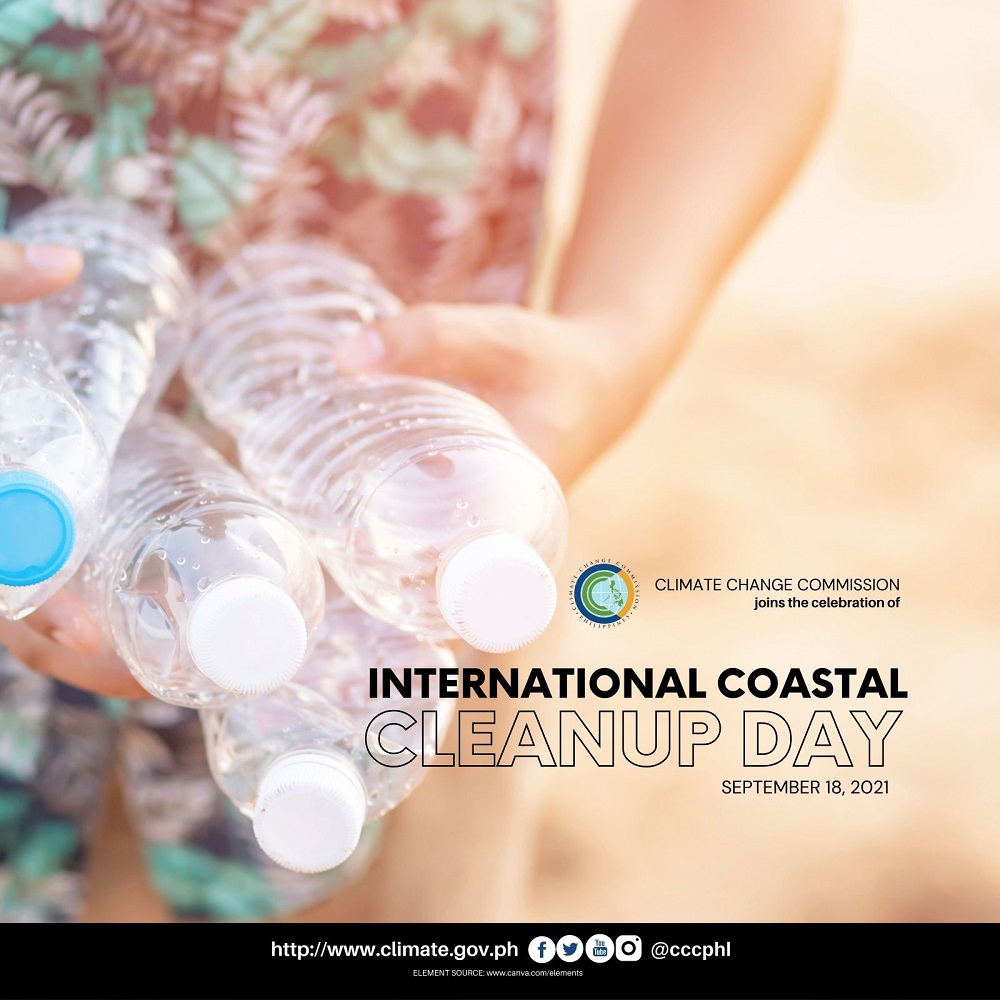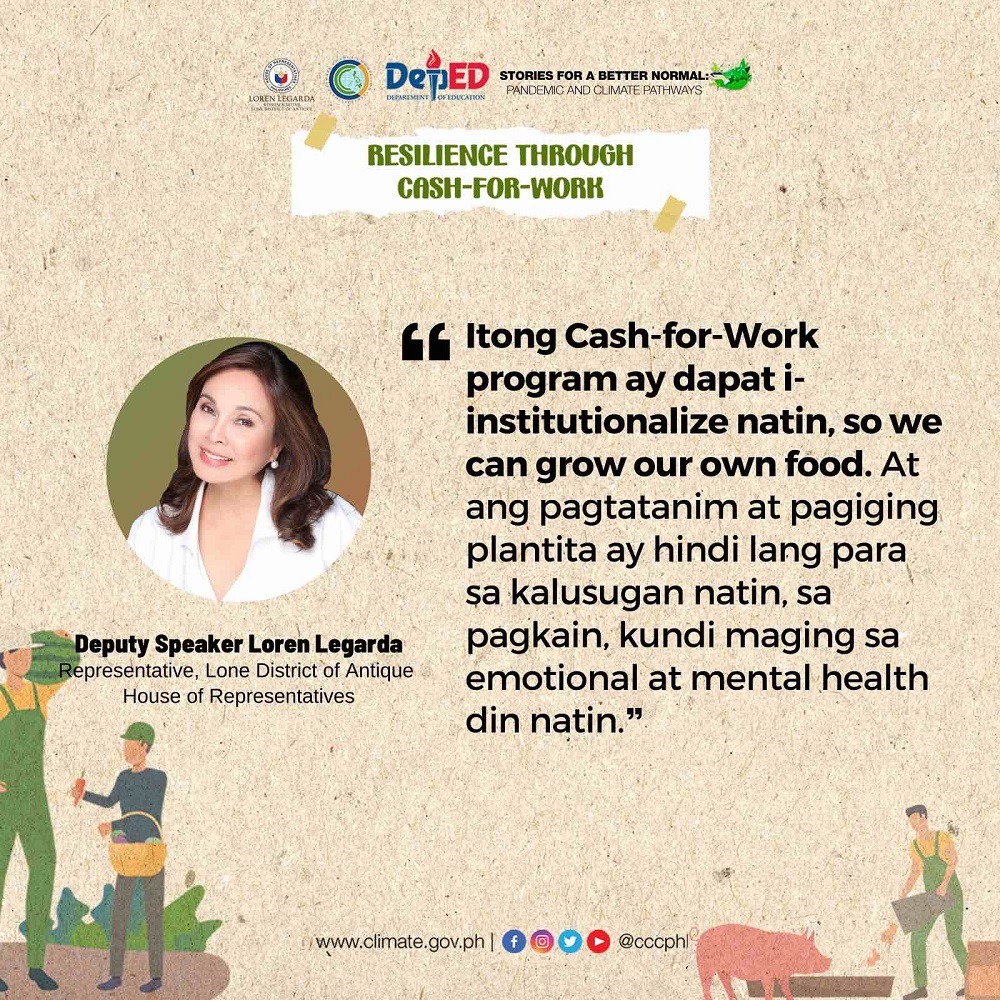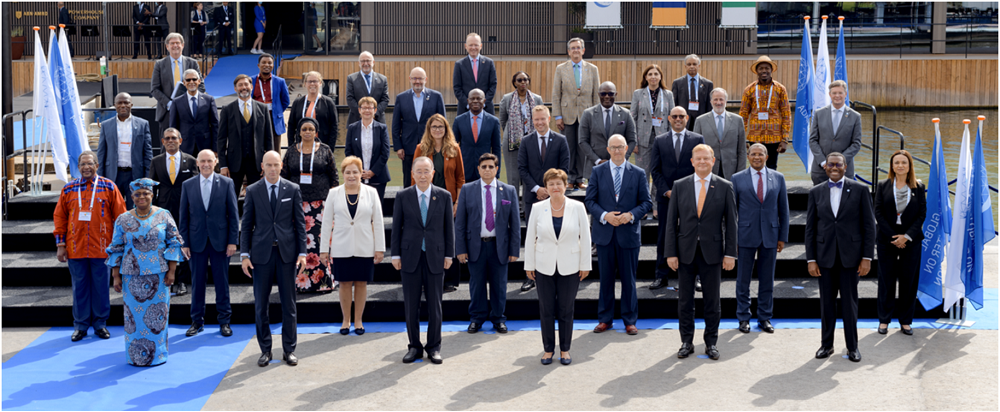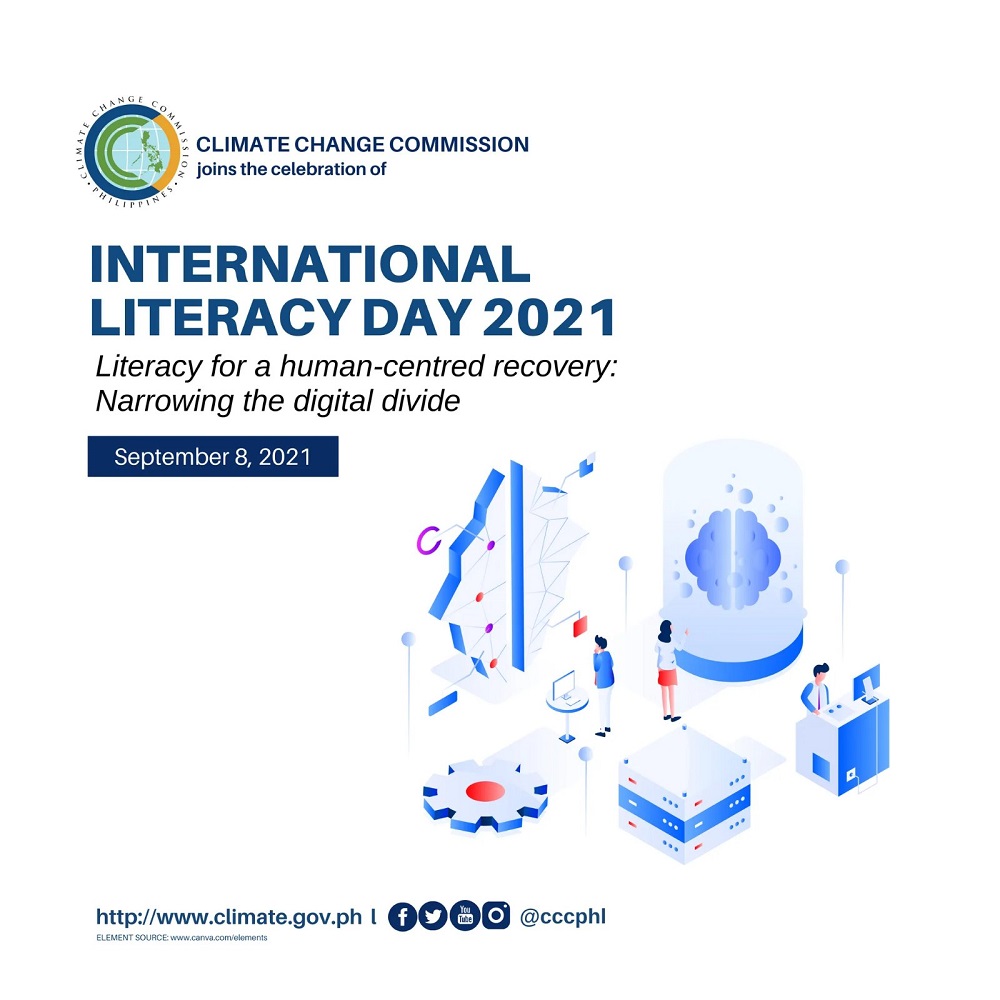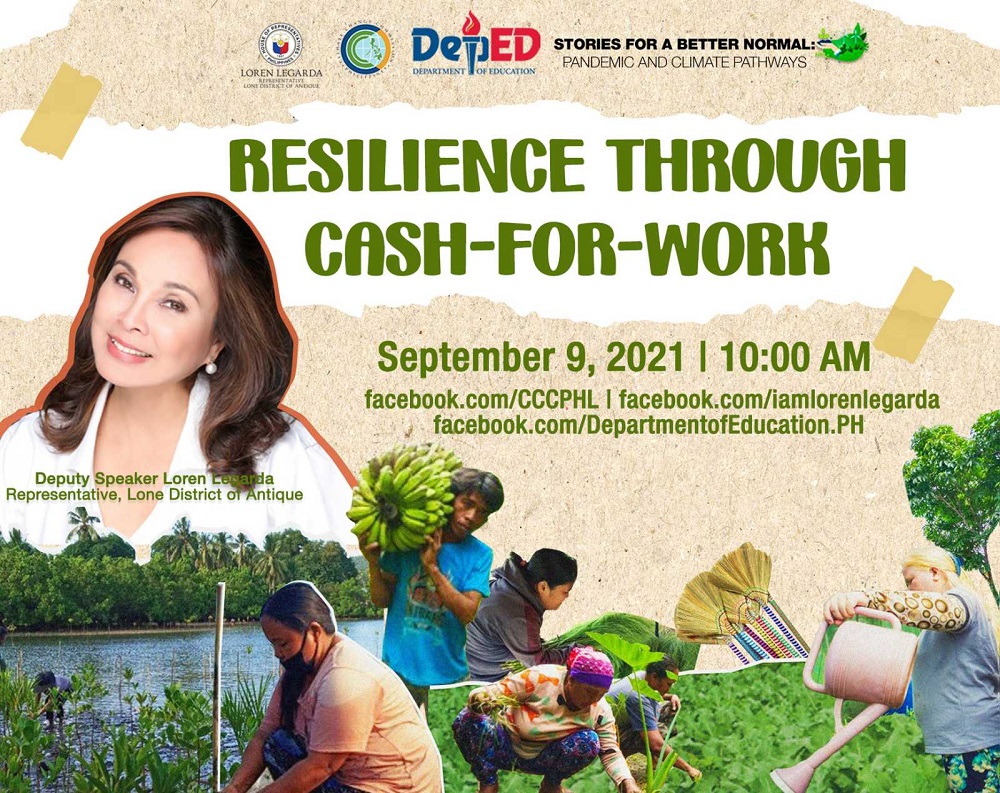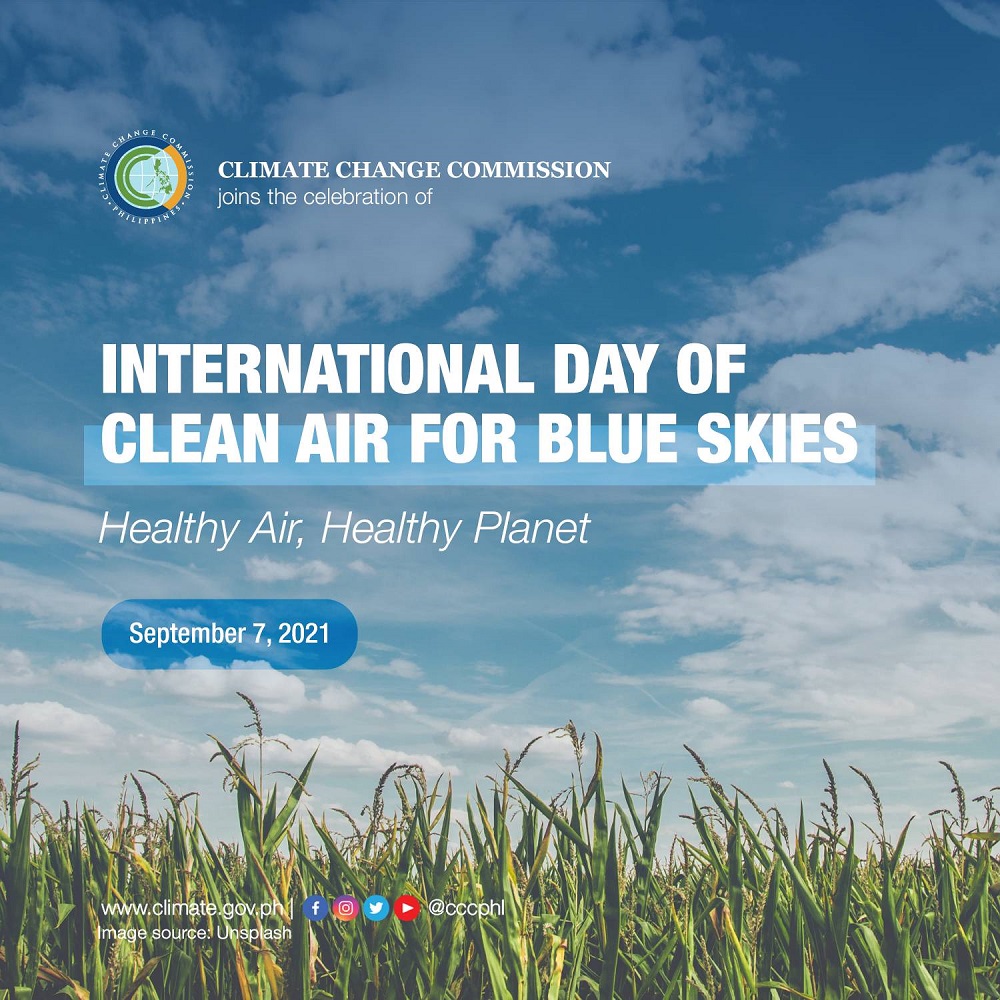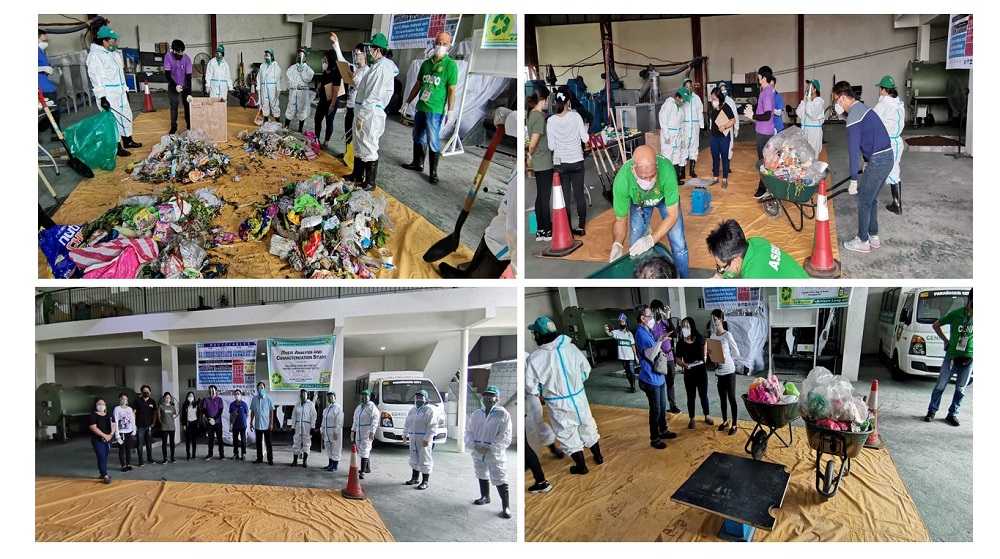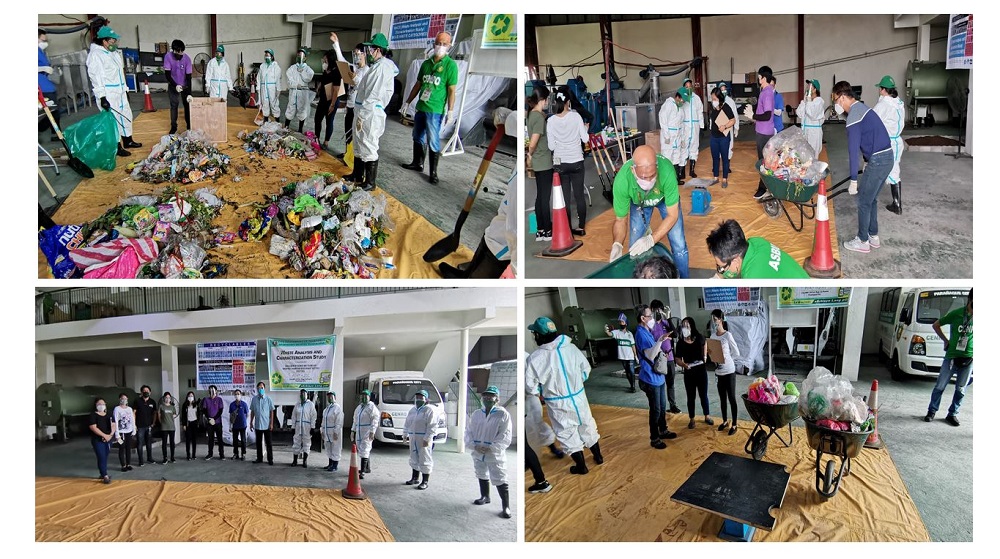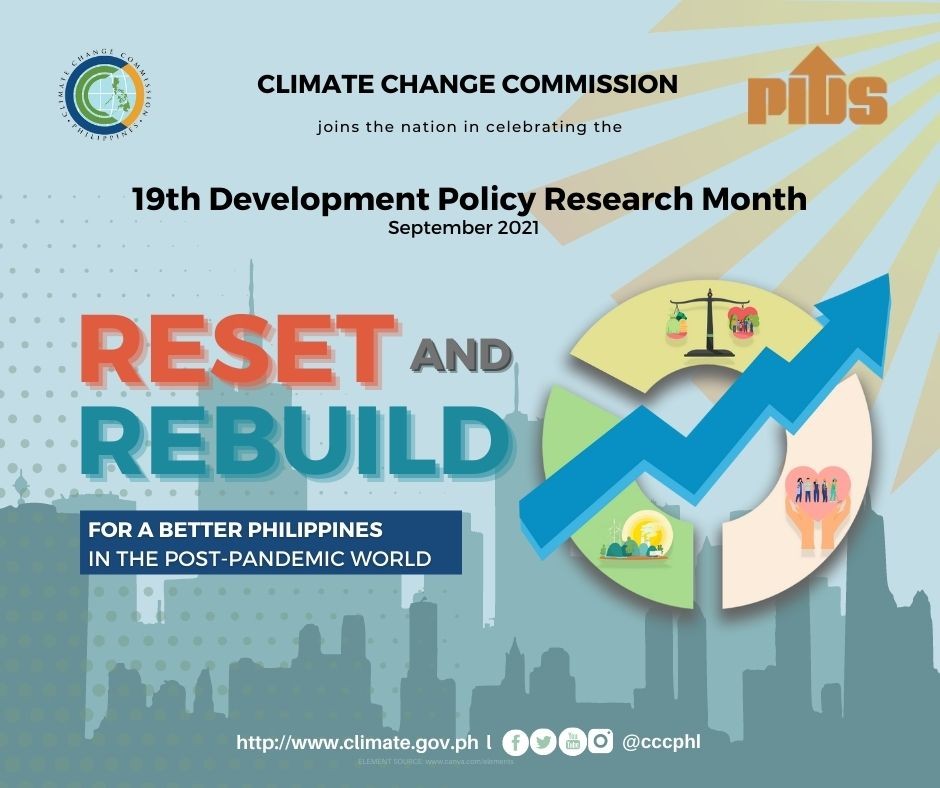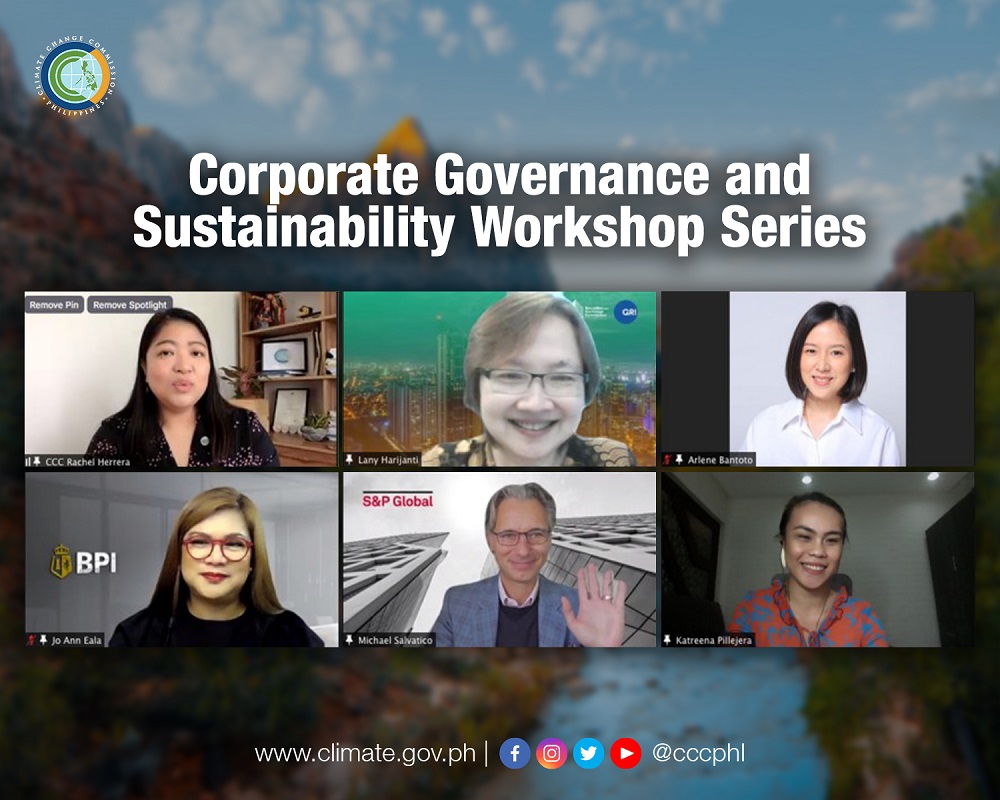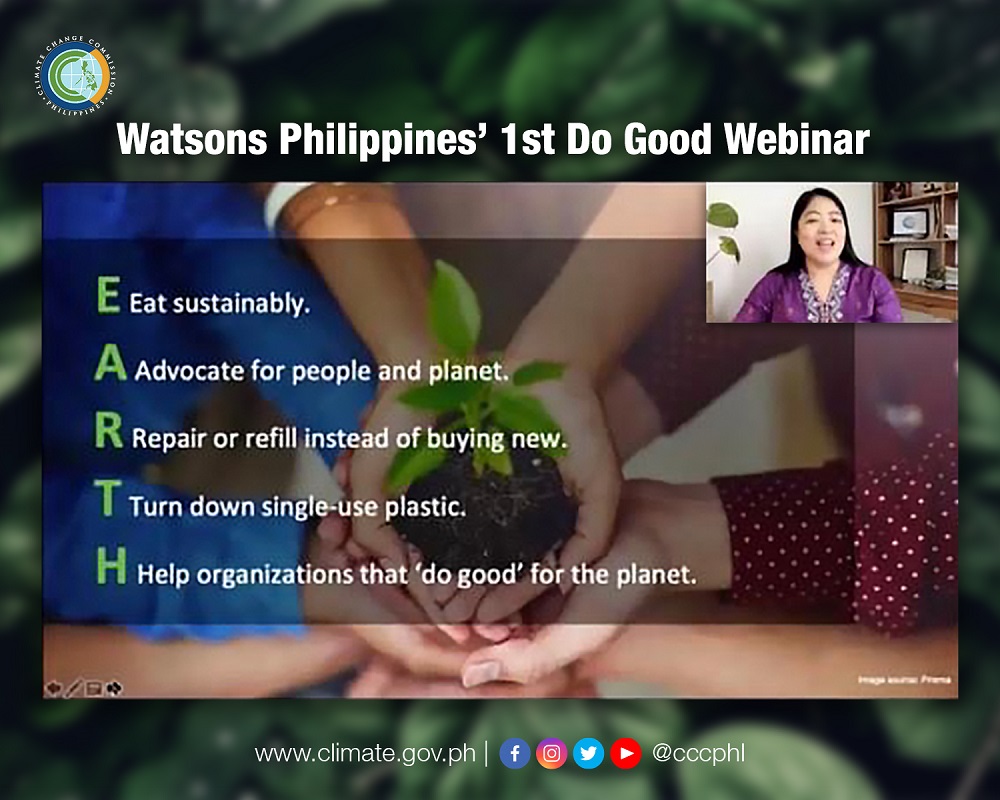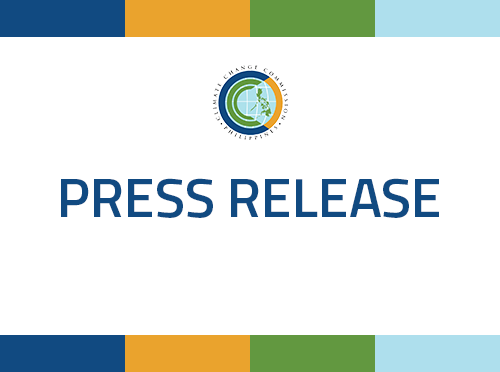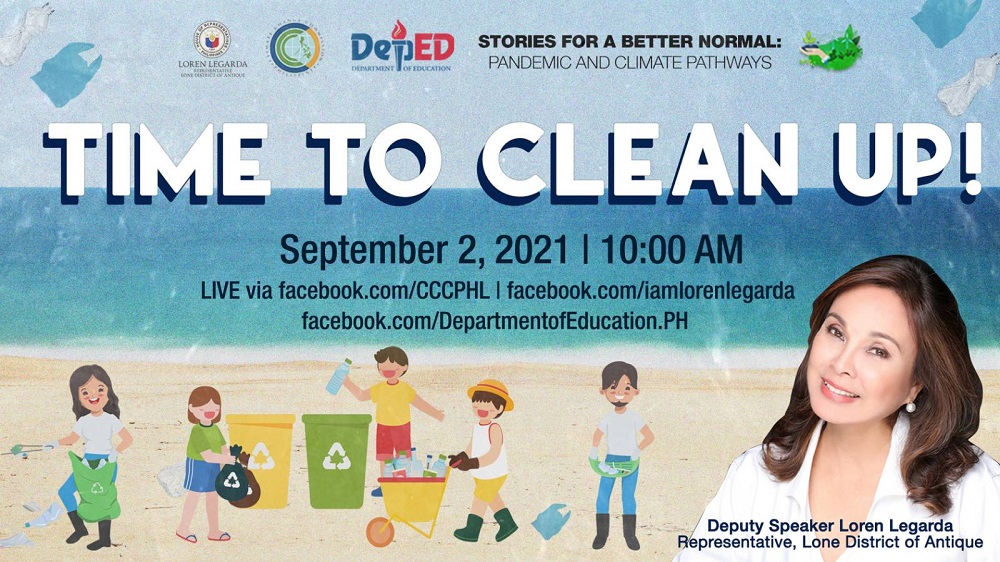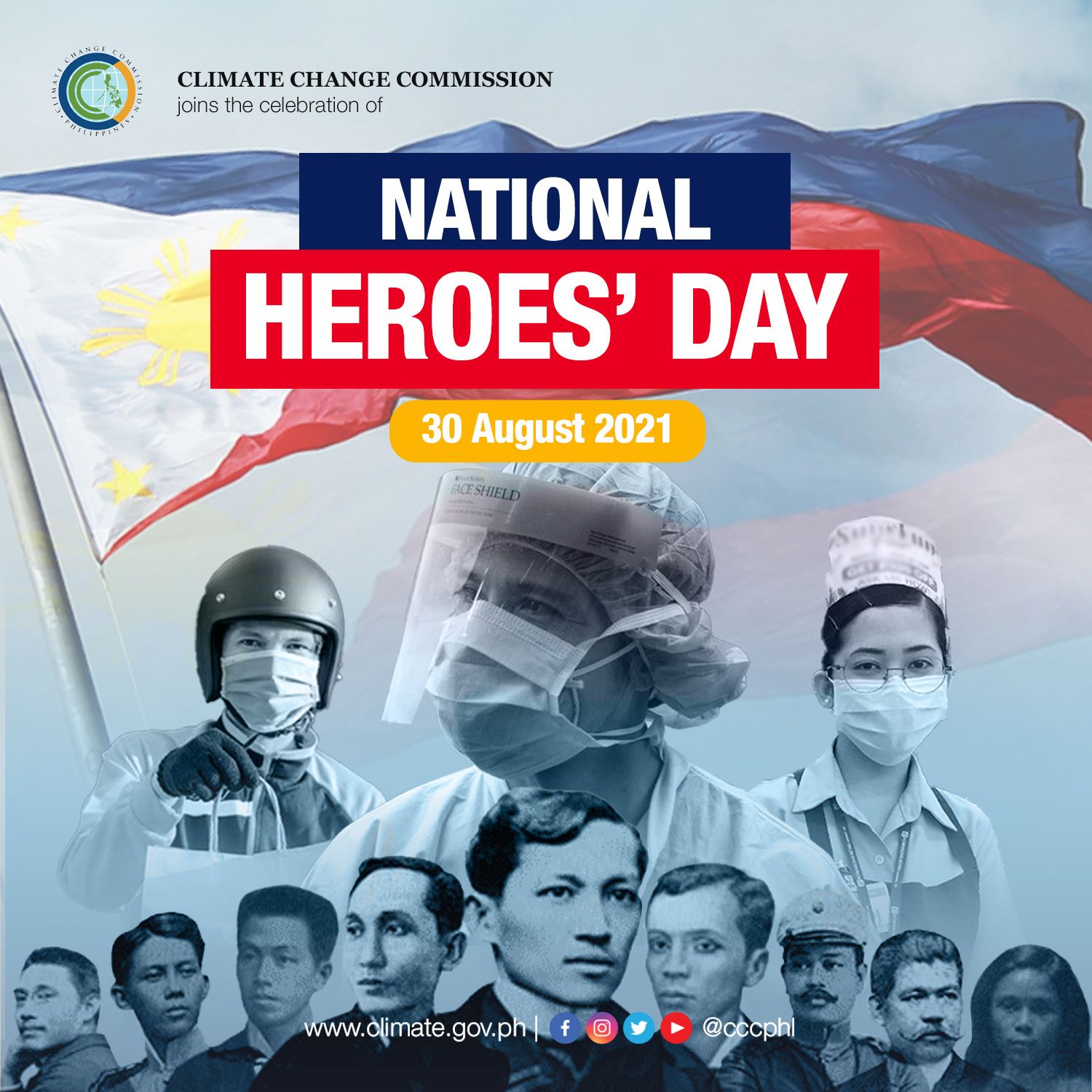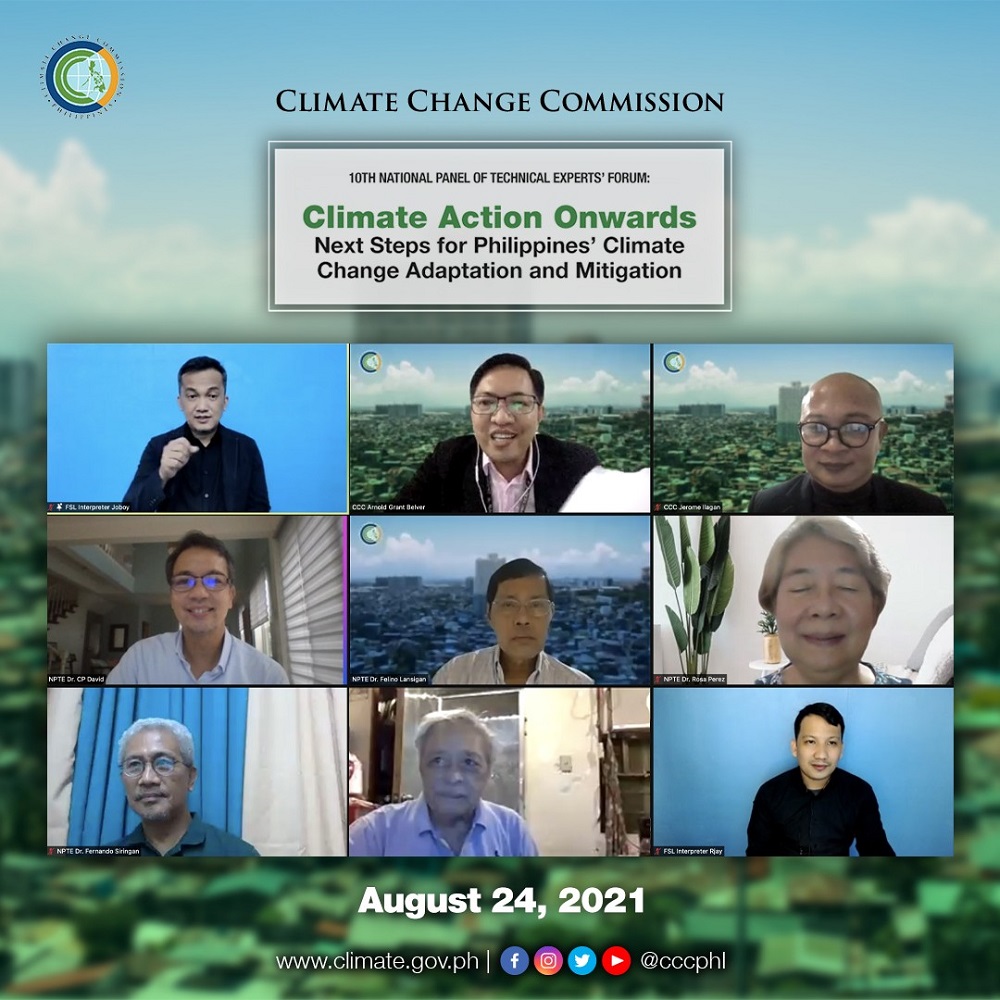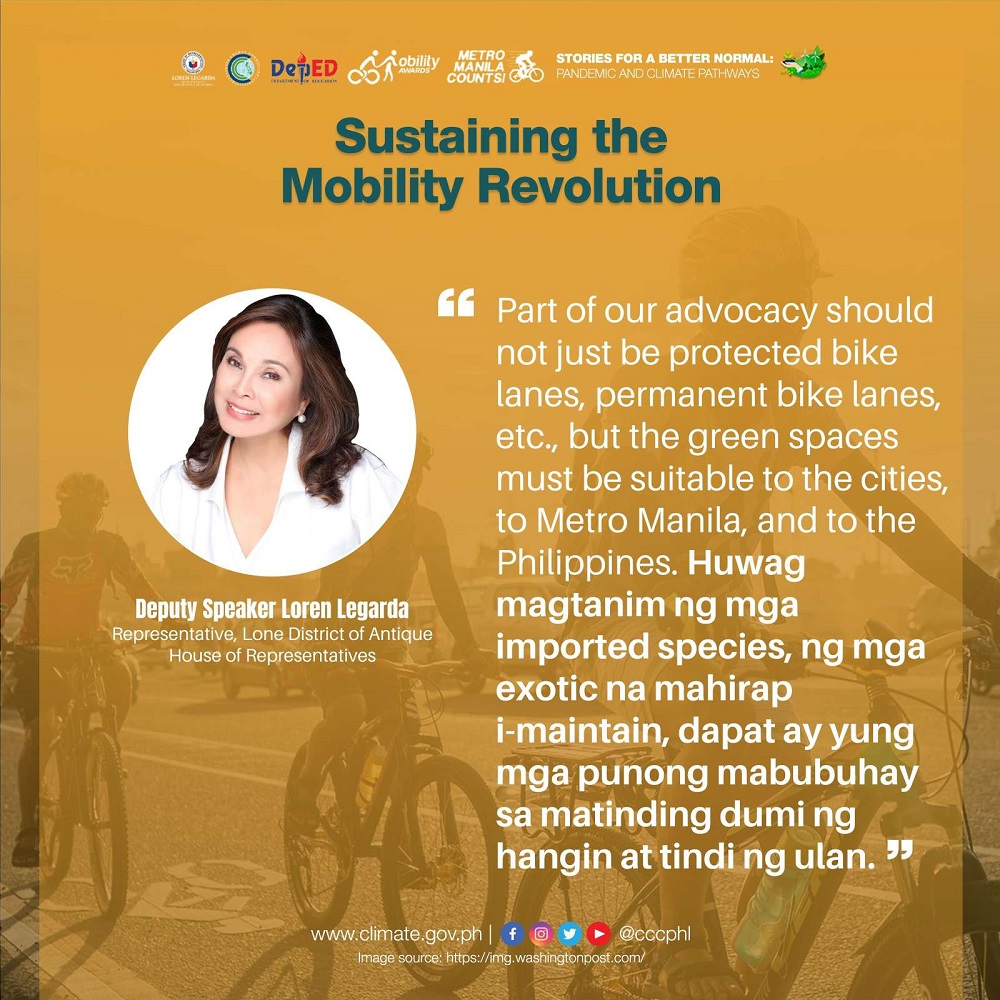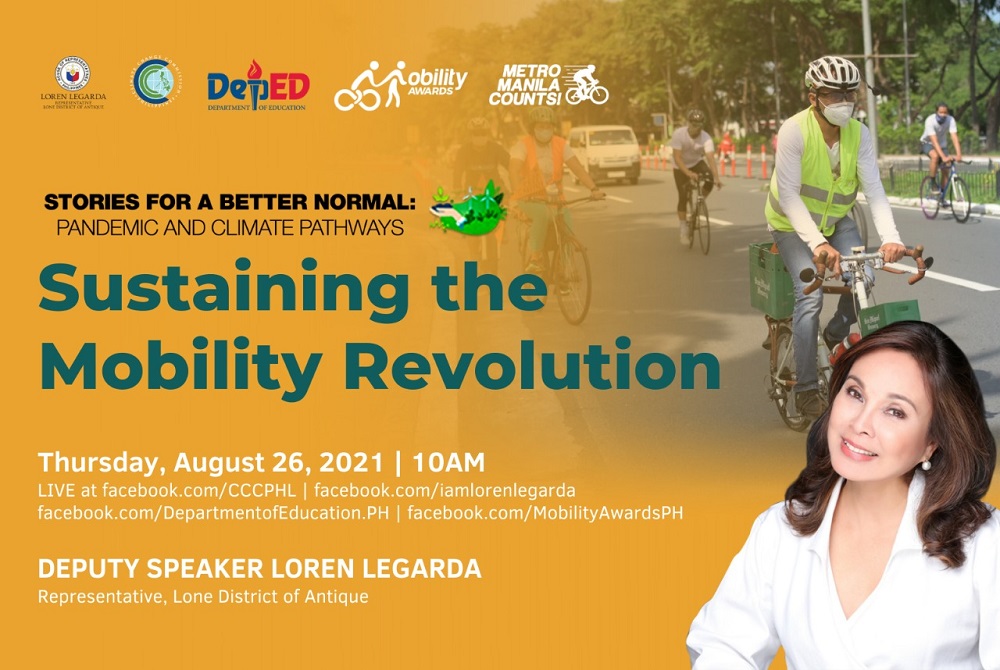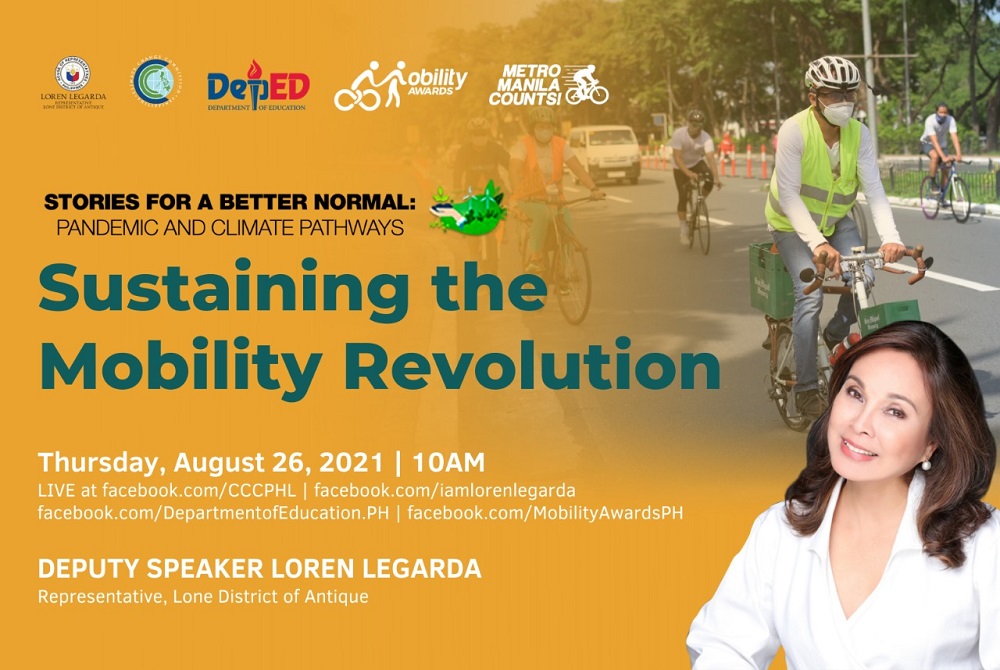MANILA, 27 August 2021 — The 59th episode of “Stories for a Better Normal: Pandemic and Climate Change Pathways” featured the continuing efforts of local government units and national government agencies to promote and advance sustainable urban mobility revolution in the country, especially in Metro Manila.
The online conversation conceptualized and hosted by three-term Senator, now Deputy Speaker and Antique Representative Loren Legarda featured guests including Mayor Joy Belmonte of Quezon City; Robert Anthony Siy III, Transport Head from Pasig City; Brian Geli, Information Officer from San Juan City; Atty. Odilon Luis Pasaraba, Assistant Secretary of the Department of the Interior and Local Government (DILG); Eldon Joshua Dionisio, Senior Transportation Development Officer from the Department of Transportation (DOTr); Michael Salalima, Head Executive Assistant from the Office of the Chairman of the Metropolitan Manila Development Authority (MMDA); and Aldrin Pelicano, Founder of MNL Moves. Red Constantino, Executive Director of the Institute for Climate and Sustainable Cities (ICSC) joined the program as co-host.
“Sinimulan natin ang mobility discussions early last year and it's taking only a few months, a year to produce a revolution that's underway, kasi ang mode natin ay tulong-tulong. Huwag kalimutan ang bayanihan, huwag kalimutang mangarap. Pero ang pangarap ay hindi mangyayari kung hindi natin ito inasikaso, at ‘pag hindi tayo nakialam,” said Constantino.
The local government units of Quezon City, Pasig City, and San Juan City presented their strategies in providing the great majority of the population has access to active mobility and non-motorized mainstream modes of transportation that are not only safe and functional, but also efficient and environmentally-sustainable.
“We have core values for active transport and sustainable mobility program: It must be comprehensive, climate-smart, equitable, convenient, and accessible. Within this program, we have the bicycle lane network or our QC bike lanes; we have improved pathways or GORA lane in order to promote walkability and pedestrianization; we have electric transport; and we have an integrated and planned city bus system which is free for everyone who would like to ride our bus – not just Quezon City residents, but also everyone who does business or is in Quezon City during the time when they need to ride our transport system,” said Mayor Belmonte.
“The Pasig Transport Office develops and operates transportation solutions that aim to improve the mobility and promote sustainable forms of transportation throughout the city. It delivers the sustainable transportation agenda of the City of Pasig for walking, cycling, and mass public transport,” said Siy.
“Last year, we started with zero bike lanes. But on June 3, 2020, World Bike Day, we committed to provide safe and very practical bike lanes not just to San Juaneños, but to everyone who crosses our city. From 0 to 5 during our mobility awards, to now 8.8 kilometers of bike lanes. San Juan City is very small, we’re just about 5.94 square kilometers wide, so medyo maikli at maliit lang ang aming bike lanes. However, we are committed to provide a healthier and more sustainable mobility for everyone in Metro Manila, especially San Juaneños,” said Geli.
Pelicano shared the results of the volunteer pedestrian and bicycle count, also known as Metro Manila Counts.
“Now, more than ever, the MMDA, with the help of LGUs, need to make counting a permanent part of their programming. When they count, when they get the number of people cycling, they can easily just create further investment. Ito ang objective ng Metro Manila Counts, to spark conversation to push for policy and infrastructure improvements,” said Pelicano.
Representatives from the national government agencies shared their insights and expressed support on the presented strategies in establishing bicycle masterplans.
“We are happy to report that a total of 457 Local Government Units (LGUs) out of the base line 1059 LGUs or 43% have already designated specific units, offices, or personnel dedicated for the implementation of active transport initiatives in their respective areas of jurisdiction. This is a huge leap in the right direction because it provides the LGUs the necessary institutional capacity to support and promote active transport in the years to come,” said Atty. Pasaraba.
“DOTr will be more than willing to support these movements and initiatives. We would like to recognize that the movement to promote active transportation embedded in our whole transportation system is a whole government and society approach. Very helpful ang initiatives ng LGUs, particularly the establishment of bike lane networks. It really complements the intercity bike lane network built by the DPWH, together with DOTr, through the Bayanihan 2 Law. It provides last-mile connectivity and accessibility sa ating bike commuters to and from their homes,” said Dionisio.
“Sa amin po sa MMDA, and together with the other government agencies - DOTr, DPWH, and DILG, it is a whole government approach and what we are doing right now is we fully support the different initiatives of local government units in terms of having their own bike lane network in the inner roads of their locality,” said Salalima.
Last year, Legarda urged the members of the Metro Manila Council and national government agencies concerned to declare cycling as an essential mode of transportation and to provide dedicated and protected bike lanes to link the cities in Metro Manila.
To further promote sustainable urban mobility in Metro Manila, Legarda urges the guest LGUs and NGAs to plant native trees in the provided green spaces in the cities.
“Part of our advocacy should not just be protected [and] permanent bike lanes, , but [also] the green spaces suitable to the cities, to Metro Manila, and to the Philippines. Huwag magtanim ng mga imported species, ng mga exotic na mahirap i-maintain, dapat ay ‘yung mga punong mabubuhay sa matinding dumi ng hangin at tindi ng ulan," said Legarda.
As an online discussion to promote health, environmental consciousness, and climate-adaptive practices, "Stories for a Better Normal" aims to change the mindset of individuals, families, and communities by demonstrating ways in which a ‘better normal’ can be realized within our communities.
This online discussion is organized in partnership between the Office of Deputy Speaker Legarda and the Climate Change Commission, with support from the Department of Education, Philippine Information Agency, Institute for Climate and Sustainable Cities, The Climate Reality Project-Philippines and Mother Earth Foundation.
August 26, 2021 Thursday

